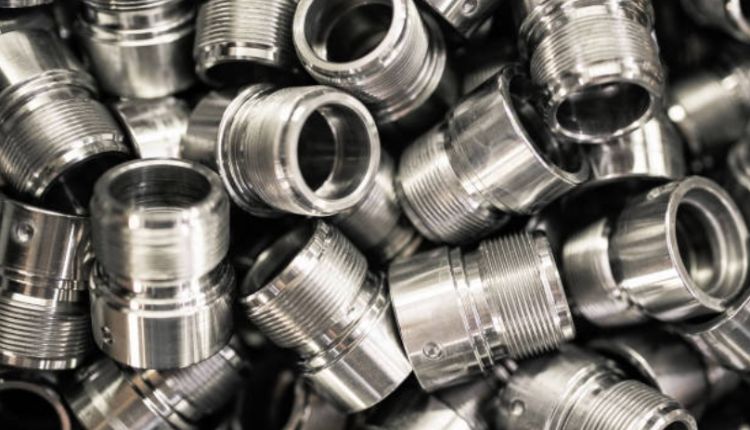With the development that is taking place regarding industry nowadays, the quality and precision needed is high, especially for sensitive industries. This is where custom CNC machining comes in for the gap. CNC turning has become an integral process in the manufacturing of complex components with precise tolerances in many industries including aerospace, automotive, medical, and defense. In this paragraph, I am going to define the necessity of precision CNC turning parts and the roles they play in the seamless production process of these sensitive industries.
What is CNC Milling?
Ward CNC says that the technology is used in the manufacturing of different medical implements and devices, car devices and aerospace parts. It is also necessary in making complex shaped components like gears, turbines, and molds. Due to the improved accuracy and repeatability provided from this technology, it facilitates increased productivity for industries that have tight constraining tolerances.
Furthermore, CNC milling machines are very versatile as they can perform many tasks in one operation which eliminates secondary procedures facilitating more time efficient production. This also allows easy and fast prototypes of custom made components on a small to medium scale. Improvements of CNC technology brings further guarantees in greater accuracy and efficiency when produced. The features of modern manufacturing and constant growth accept the requirements for more precise and efficient.
What is CNC Turning?
CNC turning, on the other hand, is another subtractive machining process, but in this case, the workpiece is rotated while a cutting tool is applied to remove material. This process is typically used for producing cylindrical parts such as shafts, pins, and rings. Unlike CNC milling, which can cut along multiple axes, CNC turning primarily operates along a single axis (the rotational axis of the workpiece).
CNC turning is an ideal method for high-volume production runs of cylindrical components, particularly when a part’s geometry is relatively simple. For example, turning is often used to create parts such as engine components, hydraulic cylinders, and bushings. The key advantages of CNC turning include its speed, cost-effectiveness, and ability to produce parts with excellent surface finishes and tight tolerances. The automation provided by CNC turning machines ensures that large quantities of parts can be produced quickly while maintaining consistent quality. This method is especially effective in industries with high-volume production needs, where reducing manufacturing costs and maintaining accuracy are top priorities. The efficiency of CNC turning also makes it suitable for producing complex parts at a high rate, ensuring businesses can keep up with production demands without compromising quality.
Is CNC Machining Hard?
For some B2B businesses, the question “Is CNC machining hard?” may be at the top of their list. The difficulty of CNC machining is proportional to the nature of the work, materials, and the design features of the part. To newcomers, CNC machining appears difficult. However, with proper training and expertise along with the right equipment, it becomes an efficient and accurate means of production. Custom CNC turning, for example, has highly skilled operators who have knowledge in the relevant programming, machine setup, and quality control procedures.
The main challenge is meeting the tolerances of the manufactured parts which may be constrained in some materials or geometries. With modern CNC machines and technology though, the processes have been greatly streamlined to minimize human error and maximize production efficiency. Therefore, custom CNC turning is not particularly difficult. It is however, attention demanding, detail orientated, and requires investment in modern machine tools. The difficulty and subtleties of designing for CNC machining is mitigated by building a robust team making it an exact method to manufacture intricate components.
Why Partnering with the Right Precision Parts Suppliers Matters
Choosing between CNC turning and EDM is only part of the equation. Working with the right precision parts suppliers ensures that whichever process you use, it’s executed to the highest standards. Trusted suppliers invest in modern machinery, skilled technicians, and strict quality control to deliver consistent results. A reliable EDM manufacturer can offer design consultation, help optimize designs for manufacturability, and assist in choosing the right materials for your parts.
B2B companies should seek out suppliers that offer full-service capabilities, including design support, prototyping, small and large batch runs, surface finishing, and inspection reports. Look for partners with experience in your industry, as they’ll better understand regulatory requirements and performance standards. Partnering with China CNC milling parts specialists who also offer EDM allows your business to consolidate its supply chain, reduce costs, and increase production agility. With global logistics and digital project management tools, it’s easier than ever to coordinate complex projects with international vendors while ensuring precision, quality, and reliability.
A good partnership can also ensure that your parts are delivered on time and meet your company’s specific design and performance standards, ultimately helping you reduce lead times and improve overall operational efficiency. The right supplier can also provide valuable insights on optimizing your production processes, which can lead to significant cost savings and enhanced product quality.
Conclusion
Manufacturers in finely detailed fields like aerospace or automotive depend on precision CNC machining services to produce components of exceptional quality. Medical devices, automotive parts, and aerospace devices are some of the products that benefit from custom CNC turning and machining. While it may present some degree of difficulty, CNC turning’s advantages in effectiveness, accuracy, and flexibility renders it invaluable to B2B operations regardless of industry.
As businesses globalize, the demand for high quality products with tight tolerances increases, and, consequently, reliance on custom CNC turning will increase as well. The right custom CNC suppliers can help companies utilize the latest engineering equipment to satisfy and exceed expectations. In addition, companies and other organizations can conduct operations more efficiently by consolidating various machining services with one reputable supplier for optimum productivity and savings. These considerations show that custom CNC turning services integrated with other types of machining continuously improve the quality standards required by high tech industries.






